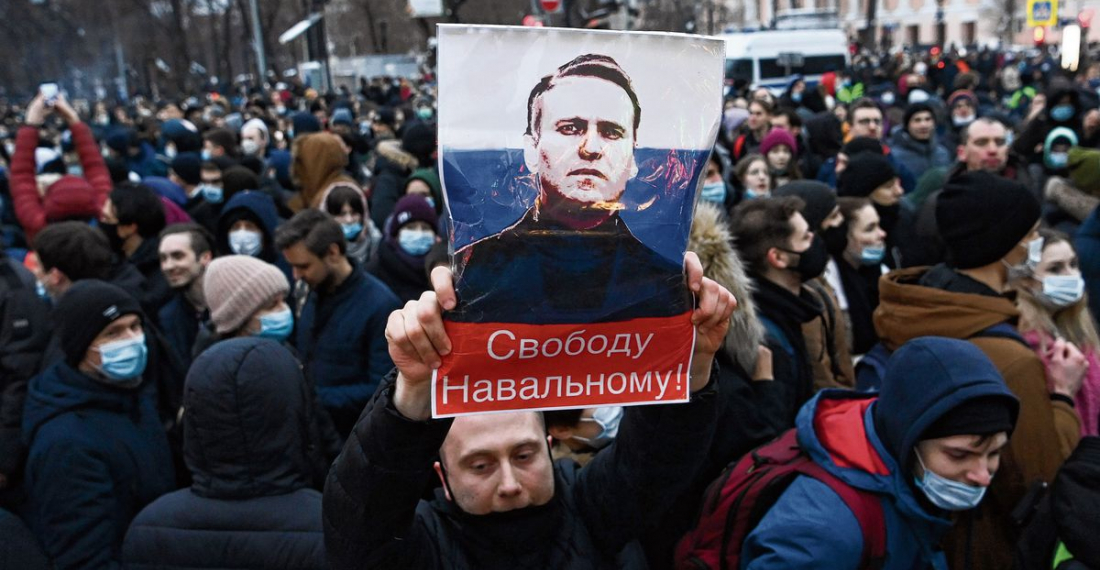The European Union and Russia have both confirmed that EU High Representative Josep Borrell will travel to Moscow next week for meetings with his Russian counterpart Sergei Lavrov. The visit will go ahead despite increasing consternation within the EU following the arrest of Sergey Navalny and clampdown on peaceful protests that followed in many parts of Russia over the weekend.
Speaking after a meeting of the EU Foreign Affairs Council, which brings together the foreign minister of the 27 member states, Borrell spoke to journalists about the visit:
"It will be a good opportunity to discuss with my Russian counterpart all relevant issues, to pass clear messages on the current situation and on the contentious [areas] of rights and freedoms. And also to have a strategic discussion on our relations with Russia, since in March the European Council is going to have a session devoted to this relationship with Russia. I think it is good, before the European Union Council discusses strategically about this relationship, to discuss with our Russian counterpart."
The visit was also confirmed in Moscow by the Russian foreign ministry:
"EU High Representative for Foreign Affairs and Security Policy Josep Borrell will pay a working visit to Moscow on February 4-6. On February 5, he will be received by Russian Foreign Minister Sergey Lavrov," the ministry said. The sides are expected to discuss the entire spectrum of problems in and prospects of the Russia-EU relations. "It is also planned to exchange views on the current issues of the international agenda, including the situation in the Western Balkans, in the Middle East and North Africa, in the Commonwealth of Independent States. They will also discuss prospects for the implementation of the Joint Comprehensive Plan of Action to settle the situation around the Iranian nuclear program, further steps to stabilize the situation in Nagorno-Karabakh, issues of security in Europe and other topics of mutual interest," the ministry said.
The timing of the visit has been complicated by events following the arrest of opposition leader Alexei Navalny on Monday (18 January) on his return to Moscow following a five-month convalescence in Germany after a nerve agent attack. Over the weekend in demonstrations in several Russian cities, including Moscow, St Petersburg, Vladivostok and other cities against the Russian authorities' handling of Navalny protestors clashed with riot police in bulletproof vests and helmets. Dozens of people were injured and 3,000 arrested.
Speaking to the media after the Foreign Affairs Council meeting, Borrell told journalists he will be talking to the Russian government on the Navalny issue, but dismissed suggestions this should become the focus of his visit, or that he should not go at all.
If the European Council has to talk about the relationship with Russia in March, I think this is a good moment to go and to talk and reach out to the Russian authorities. I do not share the opinion that when things go bad you do not talk. On the contrary, that is the moment in which talking is even more required.
Earlier, last week, the European Parliament called for a broad package of sanctions against Russia. The parliamentarians want those directly involved in the arrest of Navalny to be punished, together with people who maintain good relations with Putin. The parliament also added a call demanding a halt to the construction of the controversial gas pipeline Nord Stream 2, which brings Russian gas to Germany.
In a question discussion with Russian students on Monday ( 25 January), Putin responded for the first time to the wave of protests against the imprisonment of Alexei Navalny on Saturday. Putin called the demonstrations "illegal" and "dangerous".
The EU already has economic sanctions on the Russian energy, financial and arms sectors over its 2014 annexation of the Crimea peninsula and has imposed sanctions on Russian officials close to Putin in response to Navalny's poisoning in August.






